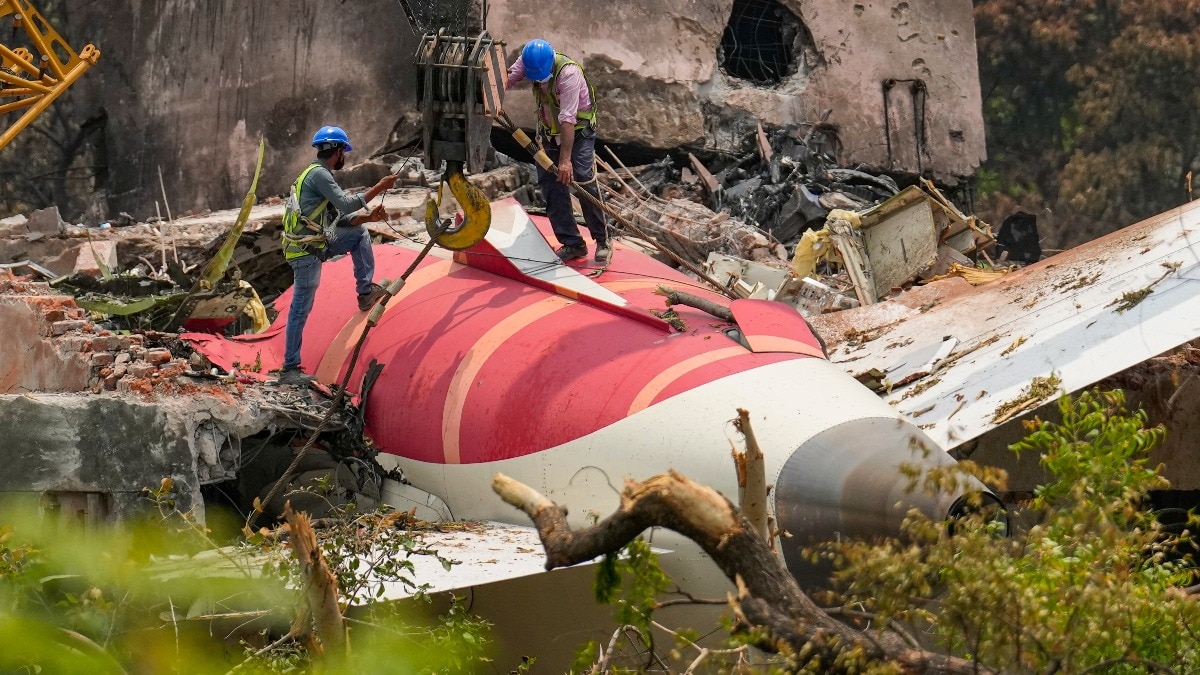Turkey Denies Links to Air India Crash, Claims Maintenance Reports Are False Amidst Rising Tensions with India
The recent Air India plane accident in Ahmedabad has sparked widespread speculation and concern, particularly regarding its links to Turkish maintenance company Turkish Technic. The Boeing 787-8 Dreamliner, which was involved in the tragic incident, reportedly had associations with Turkish Technic in terms of maintenance. However, Turkey has vehemently denied any such allegations.
Turkey’s Official Statement
In a statement issued by the Communication Directorate’s Center for Countering Disinformation, Turkey refuted claims suggesting that Turkish Technic was responsible for the maintenance of the ill-fated Air India flight. The Turkish authorities described these allegations as entirely false, stating: “The claim that the Air India passenger aircraft, Boeing 787-8, was maintained by Turkish Technic is a part of misinformation intended to sway public opinion regarding Turkey-India relations.”
According to the Turkish officials, the ongoing discourse surrounding the accident is an attempt to tarnish the friendly diplomatic ties between Turkey and India. They emphasized the importance of countering false narratives, as these claims could potentially influence public perception and political relations between the two countries.
Impact of the Incident
The Air India flight AI 171, which took off from Sardar Vallabhbhai Patel International Airport en route to London, faced disaster shortly after takeoff. The aircraft collided with the BJ Medical College hostel before crashing to the ground. The incident has led to numerous fatalities, including passengers and medical students residing in the hostel. Reports suggest that the flight carried 242 individuals, with a tragic loss of 241 lives, leaving only one survivor.
The challenges extend beyond the logistics of the crash; the intense fire that followed made it difficult to identify the victims. Most bodies were severely burned, necessitating DNA testing for identification. As of now, 33 bodies have been identified, including that of former Gujarat Chief Minister Vijay Rupani.
No Agreement for 787-8 Maintenance
Further clarifying the misinformation, Turkish authorities stated that their agreements with Air India pertain exclusively to maintenance services for Boeing 777 aircraft scheduled for the years 2024 and 2025. The Boeing 787-8 involved in the accident is not part of these agreements. Turkish Technic has reportedly not conducted maintenance on any Air India aircraft to date.
The need for transparency is apparent. The Turkish officials have highlighted their commitment to ensuring accurate information dissemination, as ongoing speculation could lead to mistrust and complications in international relations.
Identifying Victims: A Complex Situation
With the horrific nature of this crash, the identification process for victims has become critical yet challenging. After the incident, the Aircraft Accident Investigation Bureau (AAIB) managed to recover the plane’s black box, which can provide vital information regarding the circumstances of the crash. A high-level committee has been formed to investigate this tragedy thoroughly.
The emotional toll on families is profound, as many wait anxiously for news about their loved ones. Some families have already received confirmation of identification, but the heartbreaking reality remains that many more await the difficult process of identifying charred remains.
Deteriorating Relations with Turkey
This tragic incident comes against a backdrop of strained relations between India and Turkey. Following India’s Operation Sindoor against Pakistan, Turkey’s vocal support for Islamabad has created friction between the two nations. The diplomatic relationship has been further complicated by accusations of Turkey supplying arms to Pakistan, which have allegedly been used against Indian forces. In response, there has been a noticeable increase in calls for boycotting Turkish goods in India, affecting bilateral trade.
As India processes the fallout from this catastrophic crash, the aspect of international relations adds another layer to the already complicated narrative. The ongoing need for accurate information is paramount, as miscommunication can lead to deeper misunderstandings at a time when diplomatic ties need nurturing.
Final Thoughts
The Air India plane accident in Ahmedabad is not just a tragic incident in isolation; it represents a complex interplay of human lives, corporate responsibility, and international diplomacy. As the investigation unfolds, it will be essential to ground discussions in facts rather than speculation. The emphasis should remain on honoring the victims and supporting their families while also maintaining transparency in international affairs.





